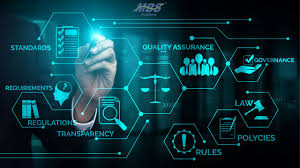Ethical Considerations in HR Decision Making
Ethical Considerations in HR Decision Making
Introduction
Ethical considerations in HR decision-making are paramount to ensure fairness, justice, and respect for individuals within the workplace. Here are some key points to consider:
Fairness and Equality
HR decisions should be based on merit, skills, and qualifications rather than factors such as race, gender, age, or other protected characteristics. Discrimination in any form should be strictly prohibited.

Transparency
HR policies and procedures should be clear and transparent to all employees. This includes being upfront about performance evaluation criteria, promotion processes, and disciplinary actions.

Confidentiality
Personal information about employees should be kept confidential and only shared on a need-to-know basis. This includes sensitive information such as medical records, performance evaluations, and disciplinary actions.

Inclusivity and Diversity
HR should promote diversity and inclusion within the workplace by actively seeking to recruit and retain employees from diverse backgrounds. This creates a more dynamic and innovative workforce.

Respect and Dignity
Every employee should be treated with respect and dignity, regardless of their position or status within the organization. HR should have policies in place to prevent harassment, bullying, and other forms of mistreatment.

Compliance with Laws and Regulations
HR policies and practices should comply with all relevant laws and regulations, including labor laws, equal employment opportunity laws, and health and safety regulations.

Ethical Leadership
HR professionals should lead by example and uphold high ethical standards in their own conduct. This includes avoiding conflicts of interest, maintaining professional integrity, and being honest and transparent in their dealings with employees.

Employee Well-being
HR should prioritize the well-being of employees and provide support services such as employee assistance programs, mental health resources, and work-life balance initiatives.

Whistleblower Protection
HR should have mechanisms in place to protect employees who report unethical behavior or violations of company policies. Whistleblowers should be shielded from retaliation and encouraged to come forward with their concerns.
Continuous Improvement
HR should regularly review and evaluate its policies and practices to ensure they are aligned with ethical principles and best practices. This includes soliciting feedback from employees and making necessary adjustments to address any concerns or shortcomings.
Conclusion
By adhering to these ethical considerations, HR can contribute to creating a positive work environment where employees feel valued, respected, and empowered to succeed.


Comments
Post a Comment